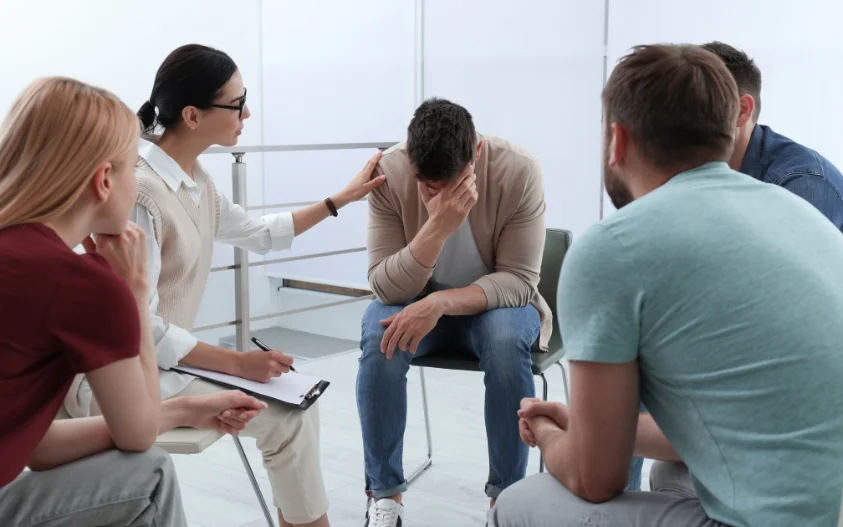24/7 Helpline:
(866) 899-221924/7 Helpline:
(866) 899-2219
Learn more about PTSD Treatment centers in Lackey
PTSD Treatment in Other Cities

Other Insurance Options

Access to Recovery (ATR) Voucher

Coventry Health Care

Private insurance

MVP Healthcare

Ambetter

Group Health Incorporated

Self-pay options

UMR

Oxford

Multiplan

CareFirst

Magellan Health

Sutter

Anthem

Meritain

Horizon Healthcare Service

CareSource

Aetna
Beacon

PHCS Network









